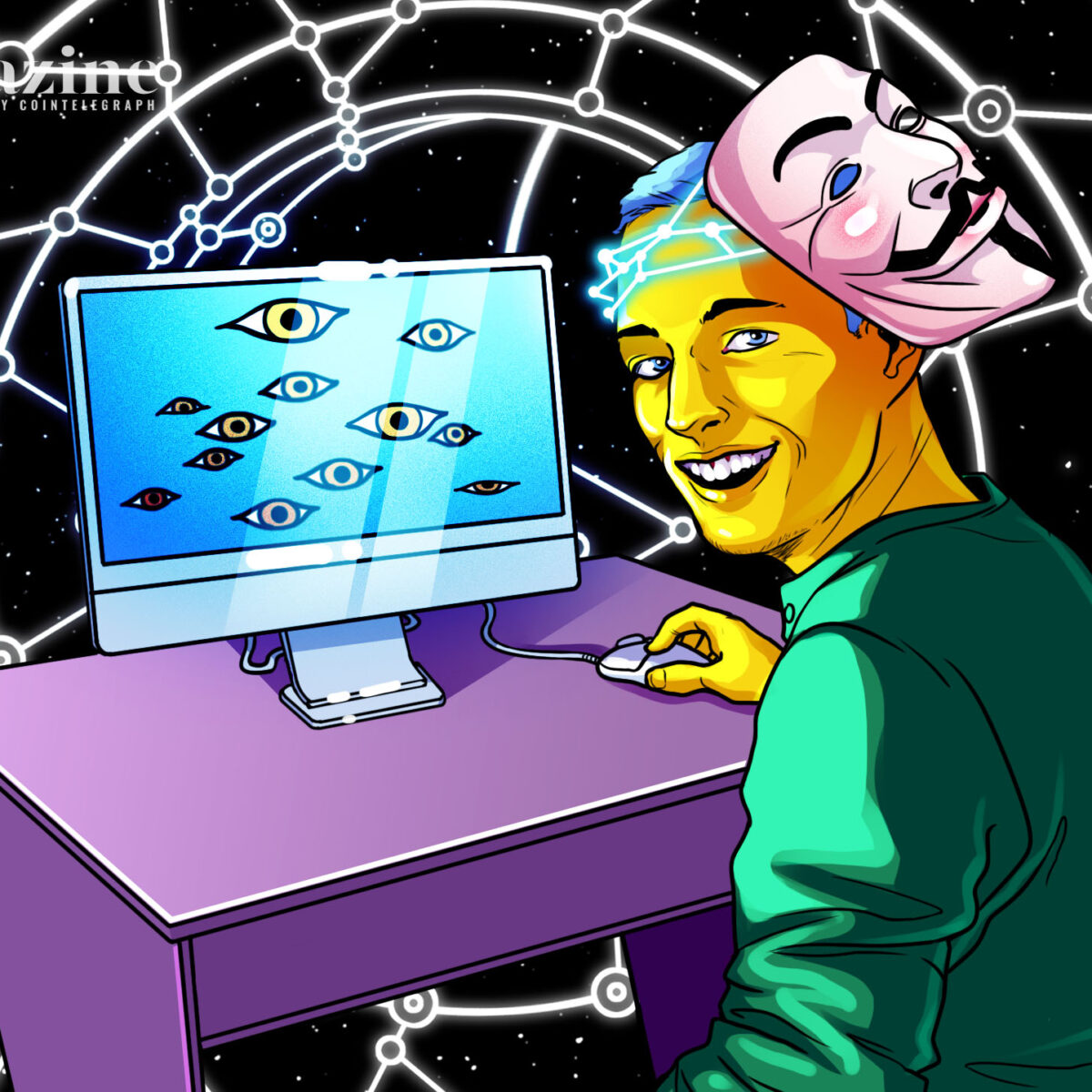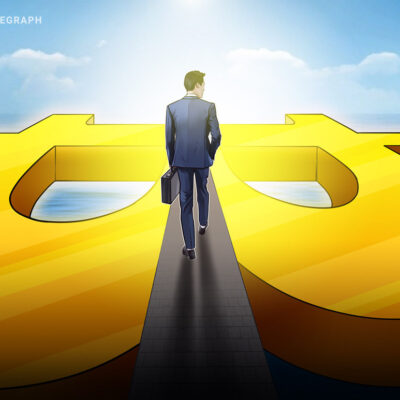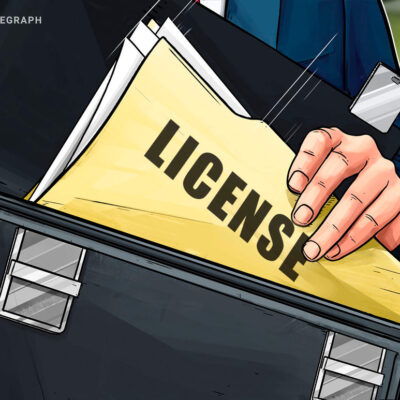Blockchains provide a trust-free anonymous intermediary for objective transactional actions, putting wealth transfer back in the hands of the individual and out of the hands of centralized control.
This, unsurprisingly, has stepped on the toes of a number of governments. To make matters worse, supporting this technology can be misconstrued as taking a stance against your home nation and can pose a massive risk to someone’s reputation. So, what can we do about it?
One exciting phenomenon that has surfaced over the years in blockchain culture is the choice to use an alias or pseudonym while using the internet — a digital profile with no ties to your real-world identity, often further hidden behind a VPN. This has resulted in a strange phenomenon where the most credible information is now coming from various animal avatars or obscure anime references.
To an outsider, or “normie,†it would seem entirely irrational to seek information from individuals who do not have some form of real-world verification. However, there is a growing number of people who believe the days of your real-world or “meatbag†identity are numbered.
Here is why that could be a very good thing.
Giving a voice to the voiceless
“Arguing that you don’t care about the right to privacy because you have nothing to hide is no different than saying you don’t care about free speech because you have nothing to say†– Edward Snowden
It should be understood that these online personas seen on Twitter are not anonymous, and instead, as Balaji Srinivasan observed, these aliases are pseudonymous. Entirely anonymous users seen on websites such as 4chan have less concern over building a reputation. This is where pseudonymous profiles have strong utility surrounding the instances where they can build a reputation around their online alias, independent of their real-world reputation. The clear benefits of independent reputational personas may not be as pertinent in western societies compared with more speech restrictive nations such as China or the more obvious and severe example of North Korea.
Ukrainian-American comedian Yakov Smirnoff brilliantly sums it up: “in Soviet Russia, it’s freedom of speech. In America, it’s freedom after speech.†In an age of political correctness and hypersensitivity, saying the wrong thing may end up with you losing your job and permanently damaging your reputation, and in more totalitarian countries, the consequences of stepping over the line can be far worse. To exacerbate this risk, social media interactions are immortalized and can come back to punish individuals years down the line.
Balaji also makes a great point about the “cost†of your reputation: “Your bank account is stored wealth. Your real name is stored reputation. Only you can debit your bank account. Anyone can debit your reputation.†Blockchain has now not only provided a safe place to store value, but the allowance of anonymity is also now a safe haven for your speech and ideas detached from real-world reputation vulnerability.
The end of the social normality prison
Social media used to be about everyone knowing you as someone you’re not, but using an alias on social media is being you without anyone knowing.
The majority of research on social media that doesn’t have questionable credibility (i.e., institutionally-run research projects) would suggest that social media has been, on the whole, anathema to our wellbeing — observed correlations include loneliness, depressive symptoms, suicide, lethargy and social anxiety, to name a few. However, it should be noted that when individuals are asked whether they would give up social media, the question is often met with “only for large amounts of money.†Why does something that fulfills such a strong unconscious desire to be connected have such devastating effects on our mental wellbeing?
Part of this reason is due to the nature of social media and the type of behavior it promotes. Social media is far less of a social media than it is a social comparison platform. A peculiar phenomenon of ghost users, individuals who frequent these various platforms but never post or engage with content, is easily observed and common on social media.
Acting like a ghost, always there but out of sight to everyone else. This behavior could be argued as an individual’s unconscious response to understand what the present social norms are, with the intention to better facilitate your actions to be more in line with what is normal.
If we are likely to primarily behave online in ways that individuals deem to be the most accepted, we are living with an opposing philosophy to being mindful. This is why the crypto culture of aliases is so exciting. It empowers a new form of social media, one that actually promotes being social by removing the obstacle of social comparison.
Rise of the autists
“What would happen if the autism gene was eliminated from the gene pool? You would have a bunch of people standing around in a cave, chatting and socializing and not getting anything done.†– Temple Grandin
One interesting and telling observation found in crypto culture is the use of the term autist. This colloquial usage is a revised definition from the traditional understanding of autism. In crypto, to call someone an autist is typically meant with positive connotations — yet another reflection of the new social structure blockchain culture provides. This new definition of autist generally refers to objective thinking with little regard to social normality.
Online personas provide a layer of anonymity that can remove repeatedly observed intimidation and prejudice in real-world social interactions. With no one specific person to judge or compare yourself to, all you are left with is the content of the message being communicated. This makes it harder, especially more than ever, to slander an individual due to some irrelevant characteristic about their physicality or even their past.
One avenue for research into online culture might be to investigate the parallels between the behavior of individuals who spend a significant time using objective coding language and reliance on what is meant by left (logic and rationality) or right (creativity and abstraction) brain thinking.
The last line of defense
One unique and revolutionary aspect of blockchain technology comes from its ability to allow complete anonymity. As I am sure readers are aware, actions on the blockchain are encrypted and stored on multiple devices or nodes around the planet, standing behind a fairly sophisticated private key function. Although these interactions are public, it is nearly impossible to single out the individual behind the interaction.
The multitude of data leaks over the past few years on centralized platforms demonstrate that technology used to be the weak link in data security. Blockchain provides a promise of security that has never been previously available. However, now that technology is not the weakest link, bad actors must target the next weakest link in the chain: the user.
Technology can be as secure as it wants, but the individual who has access to that technology will always be vulnerable to being hacked via the $5 wrench method — a term popularized by the comic XKCD for hitting someone over the head with a wrench until they give up their private key. A number of exchanges currently require Know Your Customer, or KYC, verification. As a result, it is especially important to protect your real-world identity associated with your exchange account.

However, alias culture may provide some solace from this, as the barrier between user and persona prevents would-be attackers from easily identifying and tracking down victims.
Freedom from the self
“The beginning of a great day begins a night before†– Sukant Ratnakar
In aggregate, online personas can bring freedom back to the notion of free speech. Speech is a freedom that has long been under fire since the rise of government-regulated political correctness. An online persona removes the shackles of social normality. With no identifiable human user, the risk of being dubbed as an outcast becomes inconsequential. This security allows autists, once ostracized, to demonstrate their unrealized potential on a mass scale. Online personas have paved the road for objective conversations by removing the outdated potholes of antiquated socio-psychological tendencies. Additionally, using an online persona puts yet another layer of security between a user’s interactions with the world and the value they have stored within blockchains.
Blockchain cultures have never really cared for traditional norms; they never needed to. One incredible thing about math is that it’s the language of the universe. One cannot introduce social prejudice to prove math to be incorrect. If it’s right, it just simply is, and it does not matter whether someone agrees with it or not. I would argue this has been an unspoken ethos of blockchain technology since day one.
Once we boil away erroneous bad actors and influences such as social conditioning, the cream rises to the top. Users who can provide the most value matter — regardless of their meatspace social position. The blockchain movement has always been about liberation — a digital revolution that cannot be stopped. Freedom from systemic control of your wealth, freedom from systemic regulation of your speech and finally, freedom from your physical identity.






